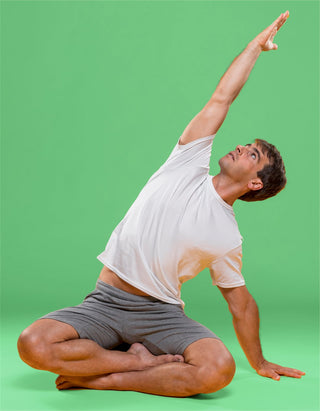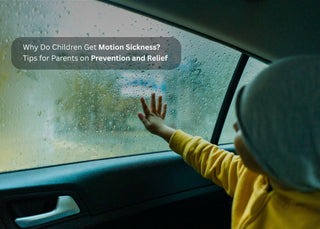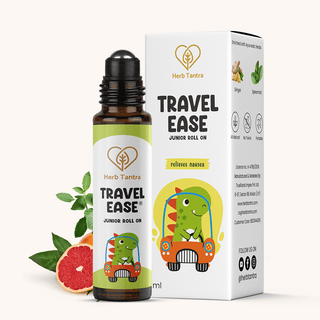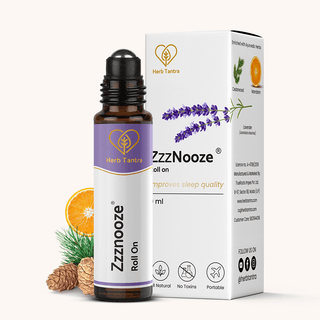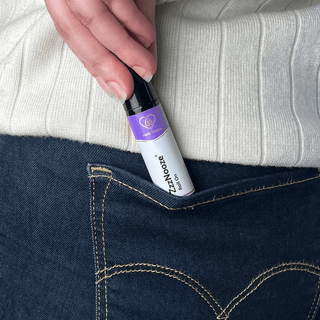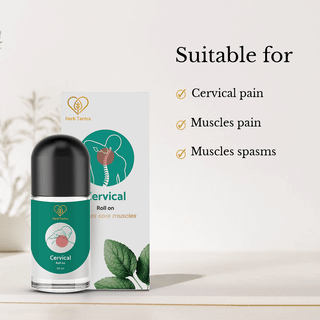Introduction
Motion sickness can be a challenging experience—not just for adults but especially for young children. As any parent can attest, those long car rides or bumpy trips on a boat can quickly turn into stressful journeys when kids start feeling nauseous and uncomfortable.
What is motion sickness?
Motion sickness occurs due to a mismatch between what the inner ear senses and what the eyes see. In children, whose sensory systems are still developing, this imbalance can lead to feelings of nausea, dizziness, sweating, and, at times, vomiting. Unlike adults, children may have a less robust ability to overcome these sensory conflicts, making them more prone to the discomfort associated with movement.
Why Do Children Get Motion Sickness?
Understanding the root causes of kids' motion sickness is the first step in managing it effectively. Here are several key factors:
- Children's inner ear sensors and visual coordination are still evolving. This developmental stage makes it easier for discrepancies in motion perception to manifest as motion sickness.
- The vestibular system, responsible for balance, is more sensitive in youngsters. Rapid or unusual movements quickly overwhelm this system.
- Young brains are still learning to interpret sensory information. The conflicting signals from the eyes and the inner ear can lead to increased discomfort and, in some cases, anxiety about travel.
- Factors such as the type of vehicle, weather conditions, or even a cluttered, overstimulating car interior can trigger motion sickness symptoms.
Common Symptoms and How to Identify Them
Recognizing the symptoms of motion sickness early can help you take swift action. Key symptoms in children include:
- Nausea and Vomiting- A common early sign, often the most distressing for children.
- Dizziness and Lightheadedness- Children may describe feeling "woozy" or unbalanced.
- Cold Sweats and Pallor- Noticeable perspiration or a decrease in normal skin tone, even in a cool environment.
- General Discomfort and Irritability:- A restless child, complaining of stomach aches or headaches, could be experiencing motion sickness.
|
Symptom |
Potential Trigger |
Action/Tip |
|
Nausea/Vomiting |
Rapid or bumpy movements |
Encourage deep, slow breathing; offer water |
|
Dizziness |
Mismatch in vestibular signals |
Adjust seating position to minimize motion |
|
Cold Sweats |
Overstimulation and anxiety |
Keep the interior cool and calm |
|
Irritability |
Continuous discomfort or anxiety |
Distract with light conversation or music |
Practical Tips for Parents on Preventing and Relieving Kids' Motion Sickness
- Plan Light Meals Before Travel: Ensure your child has a light, non-greasy snack or meal before the journey. Heavy meals can trigger nausea, whereas light foods like toast or fruit can help keep the stomach settled.
- Choose the Optimal Seating Position: In vehicles, opt for seats with the least motion—usually the front seat (if safe) or the middle of the back. This positioning minimizes the conflicting sensory signals that often lead to motion sickness.
- Keep the Environment Cool and Well-Ventilated: Fresh air can alleviate nausea. Crack the windows or use air conditioning to maintain a cool, ventilated space inside the vehicle.
- Encourage Regular Breaks and Fresh Air: On longer trips, stop periodically to let your child stretch and breathe in the fresh air. This break can help reset their equilibrium and reduce symptoms.
- Limit Screen Time During the Journey: Activities like reading or using electronic devices can worsen motion sickness by causing the eyes to focus on a fixed point. Instead, encourage your child to look out the window and focus on the distant horizon.
-
Use Natural Remedies:
Consider carrying natural aids like ginger candies, herbal teas (e.g., chamomile or ginger tea), or even a gentle roll-on remedy. These options, inspired by herbal traditions, can soothe the stomach without resorting to strong medications. - Practice Relaxation and Distraction Techniques: Teach your child simple deep-breathing exercises or use soft music and engaging conversation to distract them from discomfort. A relaxed mind often correlates with a more settled stomach.
- Stay Hydrated: Keep water readily available. Sipping water throughout the journey helps prevent dehydration, which can exacerbate nausea and dizziness.
- Prepare a Travel Essentials Kit: Pack a small bag with essentials like a light snack, water, natural motion sickness aids, and a soft cloth. Being prepared can reduce anxiety in both you and your child, making the journey more pleasant.
Each of these tips is designed to address kids' motion sickness from a holistic perspective, supporting overall kids wellness and ensuring that travel becomes a more comfortable experience for your little one.
Herb Tantra’s Approach to Natural Relief
-
Natural Ingredients:
Our products are formulated using high-quality, natural, plant-based ingredients. This means that whether you’re looking for a gentle remedy for minor nausea or a potent solution for more robust symptoms, our range of kids motion sickness medicine prioritizes safety and effectiveness.
-
Ayurvedic Wisdom Meets Modern Science:
Our formulations are inspired by the rich traditions of ayurveda while being validated by contemporary scientific research. This ensures that you’re not only relying on age-old knowledge but also enjoying the benefits backed by modern studies and clinical data.
-
Safe for All Ages:
Safety is paramount when it comes to children’s health. Our products are designed to provide relief without the harsh side effects often associated with conventional medications. They are convenient, easy-to-use (like our roll-on formulations), and perfectly suited for on-the-go families.
-
Innovation in Formulation:
We continuously innovate our product line to better meet the needs of families. Whether it’s a travel-friendly roll-on or a soothing herbal tea, every product is crafted with care and expertise, ensuring that your child’s well-being is never compromised.
By choosing Herb Tantra, you're embracing a natural, herbal approach to managing kids motion sickness—one that not only offers relief but also supports your child’s overall wellness.
When to Consult a Doctor
While many children experience mild motion sickness that can be managed with the strategies discussed, there are times when professional medical advice is needed.
Consider consulting a pediatrician if:
- If your child’s motion sickness symptoms don’t improve with natural remedies and behavioral adjustments, it might be time to seek medical advice.
- Prolonged vomiting, severe dehydration, or noticeable changes in behavior may indicate a higher level of sensitivity that requires clinical evaluation.
- Children with existing health issues such as inner ear infections or significant allergies may need tailored advice to address their motion sickness effectively.
Conclusion
Motion sickness can create unnecessary challenges for families on the go, but understanding the root causes and adopting proactive prevention strategies can make a significant difference. From adjusting seating arrangements and leveraging natural remedies to making small dietary changes, every action contributes toward a smoother, more enjoyable travel experience for your child.
Are you ready to transform travel discomfort into a journey of wellness?
Visit Herb Tantra today to learn more about our products, our natural, Ayurvedic-inspired products provide a safe and effective alternative to conventional medicines. If you’re looking for gentle, reliable kids motion sickness medicine and other natural remedies for overall wellness, explore our range of products designed with care and backed by science.
FAQs
Q1. What causes motion sickness in children?
Motion sickness occurs when a child's inner ear and eyes send conflicting signals to the brain. Because their sensory systems are still developing, even gentle movement can lead to symptoms such as nausea and dizziness.
Q2. How can I prevent motion sickness during travel?
To reduce motion sickness, encourage optimal seating where movement is minimized, keep the car well-ventilated, serve light meals before departure, and take regular breaks to allow fresh air and stretching.
Q3. What natural remedies work for kids' motion sickness?
Natural options like herbal teas (such as ginger or chamomile), simple aromatherapy using child-safe essential oils, and specialized kids motion sickness medicine formulated with plant-based ingredients can provide effective relief.
Q4. Are there safe over-the-counter kids motion sickness medicines?
Yes, over-the-counter options are available that use natural, plant-based formulas. Selecting products that support kids wellness, like those from Herb Tantra, ensures gentle and safe relief for children.
Q5. When should I seek a doctor's advice for my child's motion sickness?
If your child experiences persistent or severe symptoms—such as frequent vomiting, dehydration, or significant discomfort, consult a doctor. Personalized medical advice ensures that any underlying issues are properly addressed.


